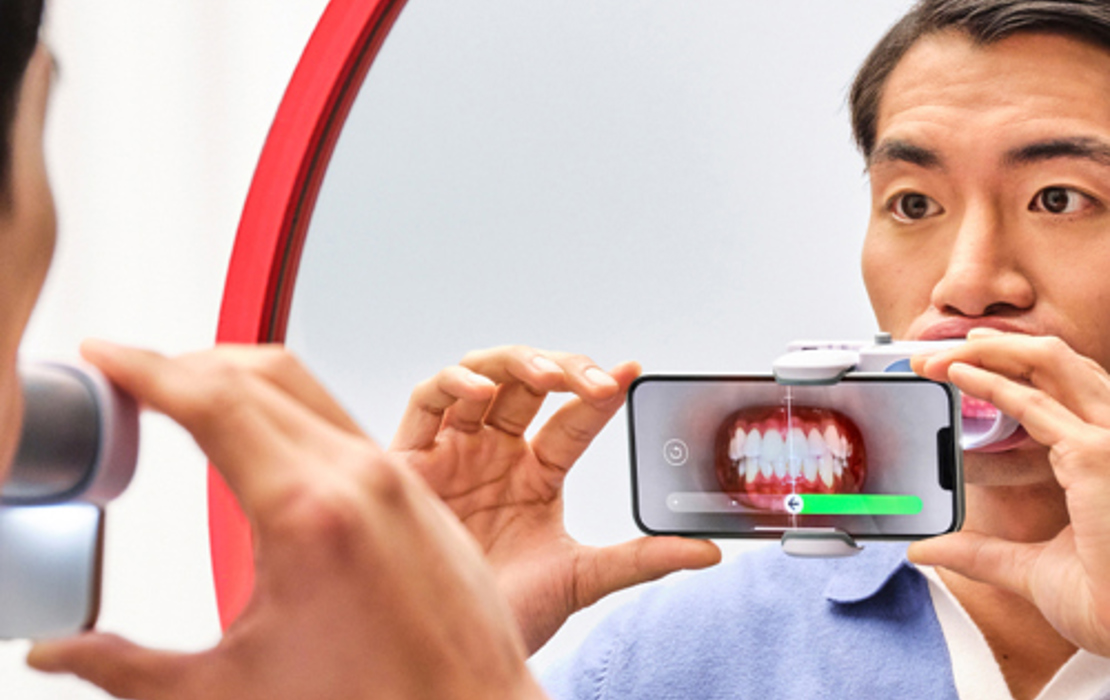Pathways to dentistry: Researchers move dental profession forward
Contributions have lasting impact on oral health care

Editor's note: This is the third article in a series that celebrates the diversity of career paths in dentistry and the Association's efforts in supporting dentists' career choices in the profession.
From examining the connections between oral and overall health to evaluating the behavior of materials used in dentistry, researchers ask the questions and do the work to inform how dentists care for their patients every day.
"Dentistry is an amazing profession that has offered so many of us the opportunity to improve patients' lives. It is critical that we continue to evolve and expand our understanding of the diseases and conditions that affect our patients and continue to work to optimize the treatments that they receive," said Mia Geisinger, D.D.S., professor and director of the Advanced Education Program in Periodontology at the University of Alabama at Birmingham School of Dentistry. "My goal in research is always to change the way that we treat patients for the better, and while the pace of scientific discovery may be incremental, we continually strive to improve oral and overall health for all."
The American Dental Association recognizes the importance of research — like Dr. Geisinger's on the impact of periodontal disease and treatment on overall health — to the practice of dentistry. One of its core values is to be a science- and evidence-based organization, a goal that is supported by the ADA Science & Research Institute, which conducts research and produces evidence-based resources for dentists.
"Scientific research is so important to the health and advancement of the dental profession. That's why I'm really proud of the work ADASRI does," said Marcelo Araujo, D.D.S., Ph.D., chief science officer of the ADA and CEO of ADASRI. "At ADASRI, our work runs the gamut of scientific research — everything from basic science, like the creation of novel dental materials, to applied science that tests and refines dental materials, to clinical and translational research that communicates that basic and applied science in a way that is easy to implement chairside. As a whole, the work of ADASRI’s researchers, and really the work of all dental researchers, has a profound impact on improving dentistry."
The ADA also has two scientific journals: The Journal of the American Dental Association and JADA Foundational Science.
"The ADA continues to demonstrate its strong commitment to the health sciences through many avenues, including the dissemination of basic, translational and clinical research through its journals and other media offerings," said Jack L. Ferracane, Ph.D., editor-in-chief of JADA Foundational Science. "It all boils down to creating new and better pathways to oral health, and we all find it exciting and gratifying to play our different roles in the process that links discovery to successful clinical care."
A New Day for Dentistry, a campaign launched by ADA President Cesar R. Sabates, D.D.S., celebrates the ADA’s diverse community of dentists by recognizing their personal differences and the varied career paths they have chosen within the profession.
"Researchers are essential members of the dental workforce," Dr. Sabates said. "Clinicians strive to provide the best care they can to their patients, and researchers provide the evidence they need to make informed decisions. Their work also helps to expand dentistry’s knowledge base, driving innovation and advancement in our profession. The contributions of researchers have a lasting impact on all facets of oral health care."
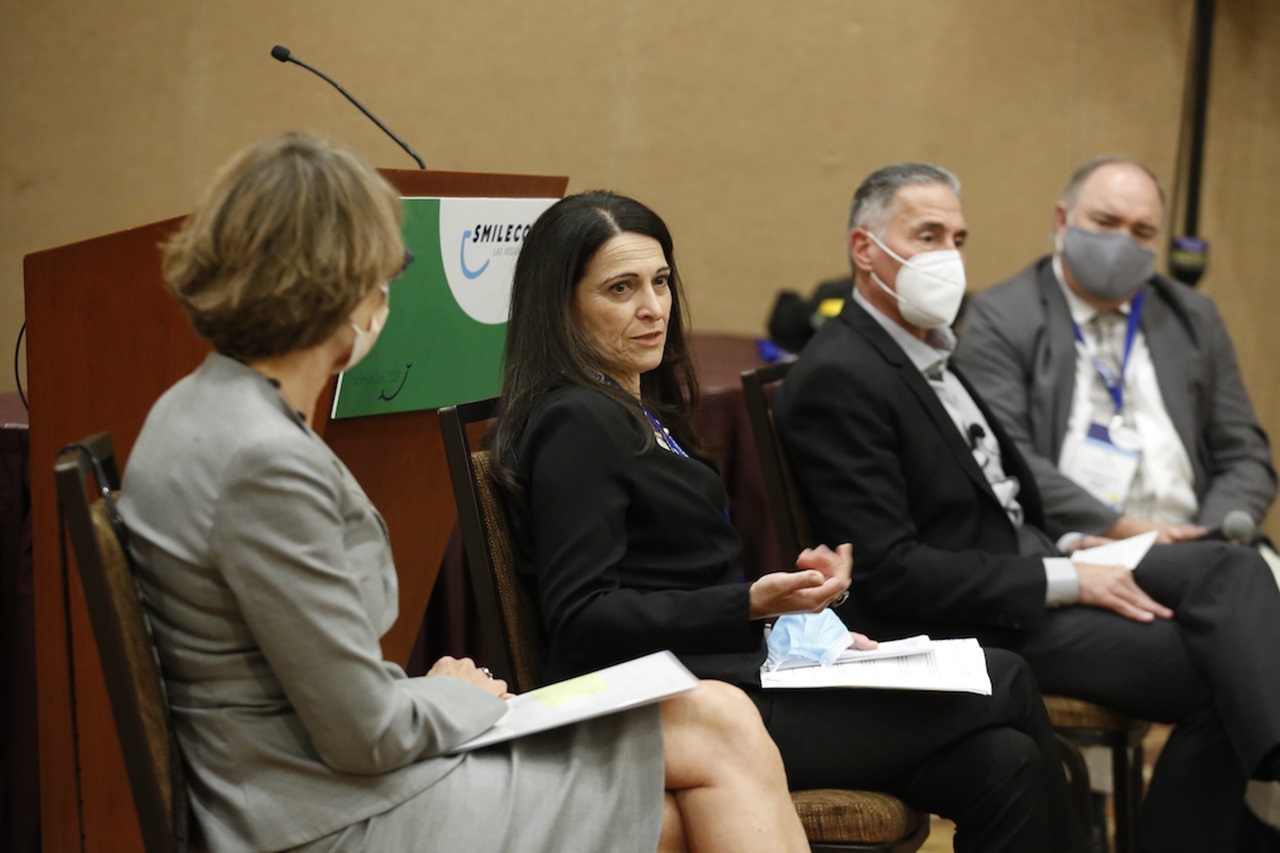
For dentists who choose to pursue research as part of their career, a natural curiosity is key.
"I was exposed to research and science when I was in high school, and ever since, I was always interested in learning the underlying mechanisms of diseases," said Hatice Hasturk, D.D.S., Ph.D., director of the Center for Clinical and Translational Research and senior member of the staff at the Forsyth Institute. "I believe that without knowing what is really involved in tissues or structures we are working with, we cannot provide an effective and long-lasting solution."
Dr. Hasturk, who won the ADA’s 2020-21 Norton M. Ross Award for Excellence in Clinical Research and serves on the ADA Council on Scientific Affairs, teaches at the Boston University Henry M. Goldman School of Dental Medicine and Harvard School of Dental Medicine and practices once a week as a staff dentist/periodontist at the Forsyth Faculty Associates Clinic. Her research focuses on periodontology and immunology.
Dr. Hasturk's studies have shown that changing the body's response to infections and diseases can reduce the oral disease it is experiencing, provide better stability and lead the body to produce more beneficial molecules that can help improve its defense system against other infections and diseases.
"As a dentist/periodontist, my goal is to provide the best prevention and best treatment to my patients," Dr. Hasturk said. "As a researcher, this goal drives me to better understand health and disease, not only to improve oral health, but also overall health."
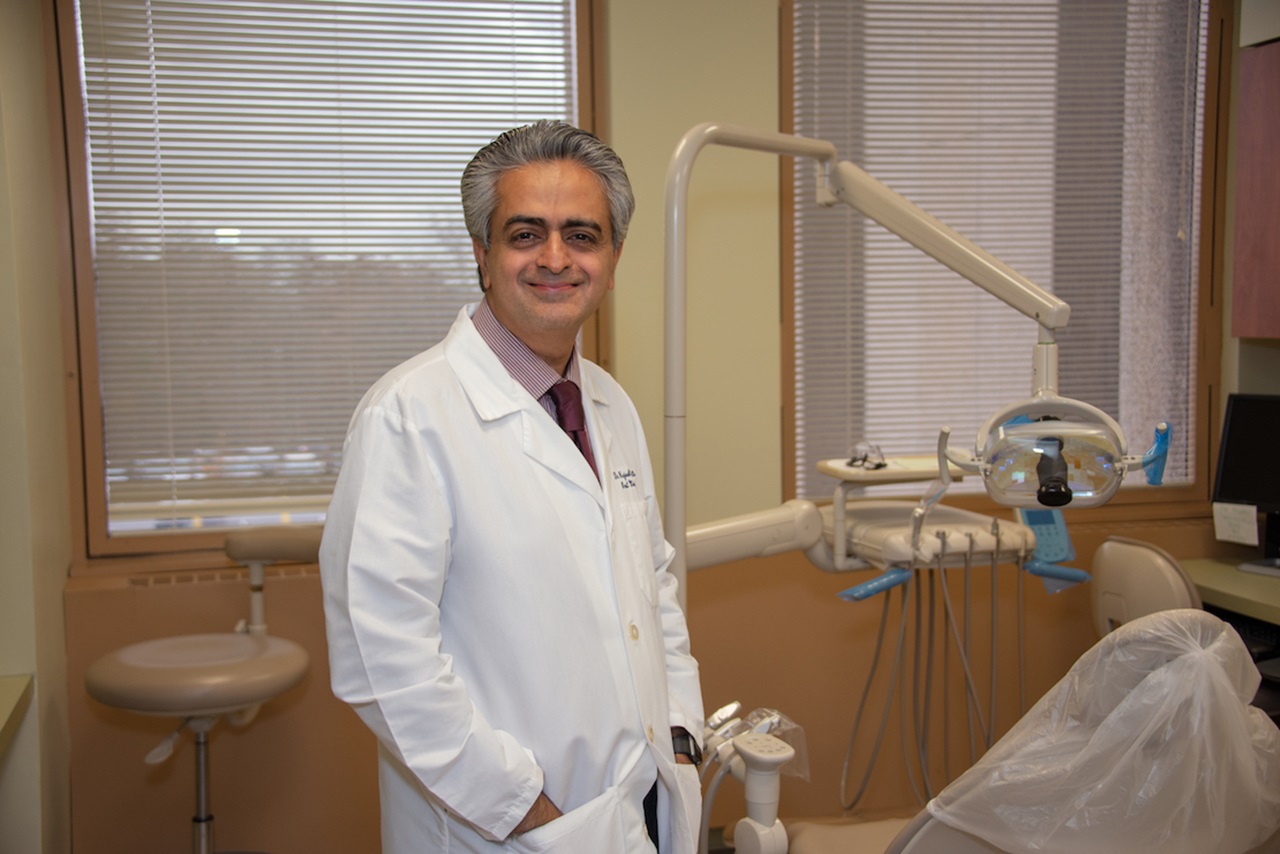
For Rajesh Lalla, B.D.S., Ph.D., professor of oral medicine and associate dean for research at the University of Connecticut School of Dental Medicine, his favorite part of being a researcher is the ability to create new knowledge.
"It is extremely satisfying to be able to go through the process of having an idea, designing a study to test that hypothesis and determining what the truth really is," said Dr. Lalla, who studies the oral side effects of radiation therapy and chemotherapy used in the treatment of cancer.
His research team is working to publish results from a multicenter clinical study that enrolled more than 500 patients undergoing radiation therapy for head and neck cancer.
"One of the novel findings is that the radiation treatment led to a striking increase in gingival recession," said Dr. Lalla, who is the immediate past president of the Multinational Association of Supportive Care in Cancer — the first dentist to hold the role. "It was known that these patients tend to get cervical caries after radiation therapy, but the reasons were not clear. Our finding indicates that exposure of the cervical areas of teeth due to gingival recession may explain the increased risk for cervical caries."
At the University of Connecticut, Dr. Lalla developed the dental school’s course on evidence-based decision making, which emphasizes the importance of evidence to the practice of dentistry.
"Dentistry is a scientific profession. The care we provide for our patients must be evidence based," said Dr. Lalla, who won the ADA’s 2020 Evidence-Based Dentistry Accomplished Faculty Award. "Research provides that evidence, so research is the very foundation of our profession."
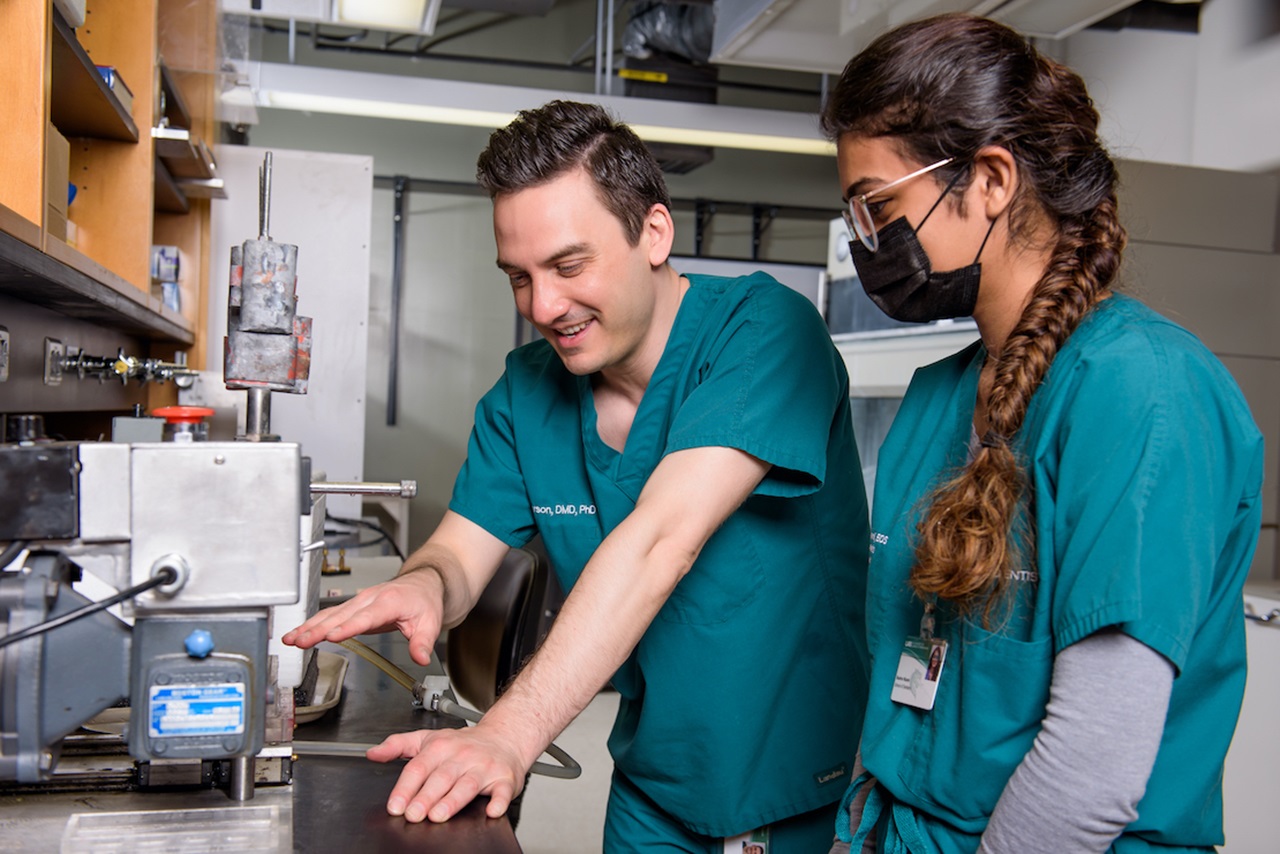
With a background in engineering, Nathaniel Lawson, D.M.D., Ph.D., performs applied dental materials research at the University of Alabama at Birmingham School of Dentistry, where he is an associate professor, director of the biomaterials residency program and director of the division of biomaterials. He and his team devise testing equipment and protocols to evaluate dental materials to best predict their clinical performance, and they are perhaps most well known for performing wear testing. His lab is currently testing the wear of new 3D-printed materials being developed for dentures, crowns and occlusal guards.
"There are many different types of dental research. Many dentists may think of the incredible scientific work conducted by basic and translational scientists who are working to develop new treatments, materials and drugs to treat dental and oral conditions," said Dr. Lawson, who won the ADA's 2016 John W. Stanford New Investigator Award. "However, there is still research needed to evaluate the materials that are already in clinical use in order to determine the best uses of these materials. This information can help the clinician better perform work in their office."
Dr. Lawson began conducting research when he was applying to dental school at the University of Alabama. After a brief stint in clinical practice following graduation, his dental school research adviser asked if he would be interested in returning to his alma mater for an academic position performing research and teaching.
"Within a couple years of working in the position, I realized that I really loved what I was doing," Dr. Lawson said. "I really enjoy thinking of clinical problems, performing a study to try to better understand the best clinical treatment, trying what I learned in practice and then sharing that information through teaching."
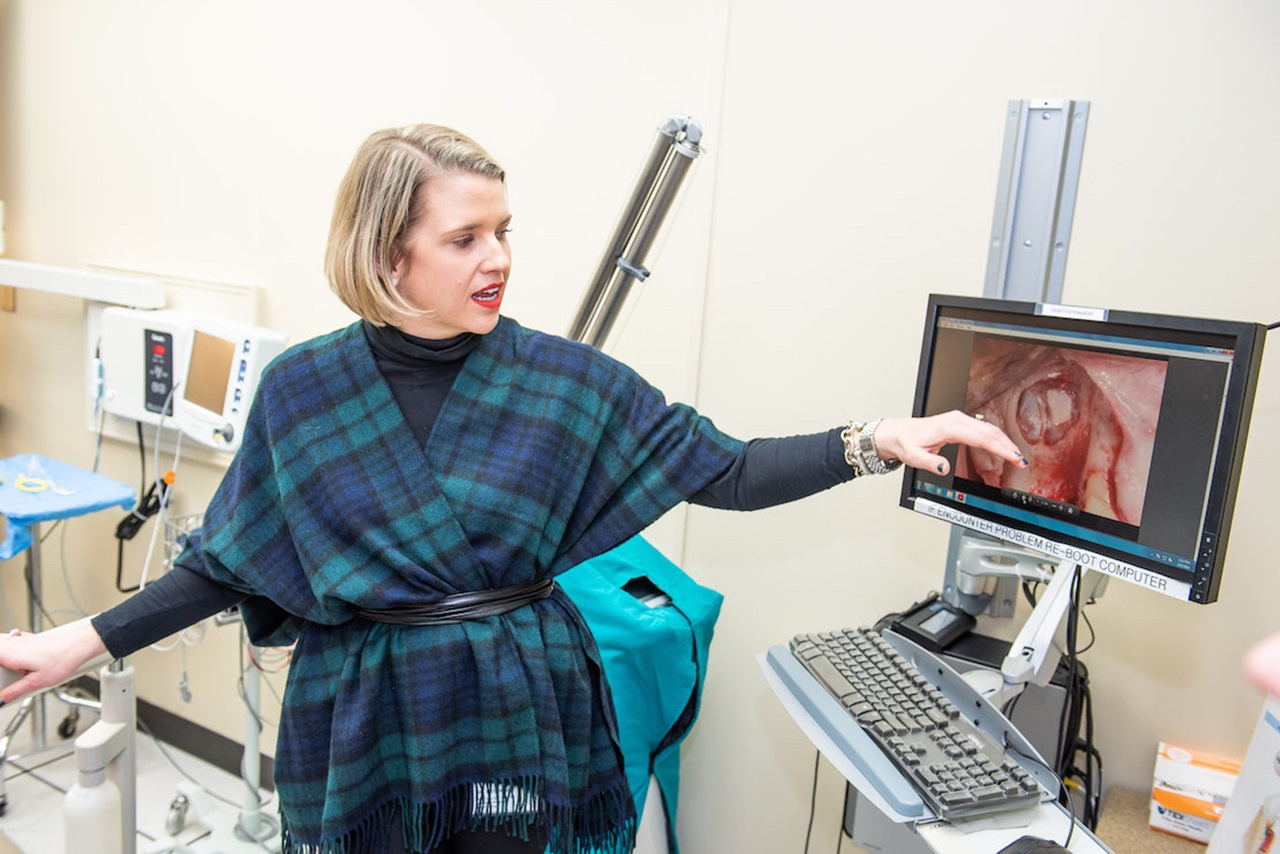
Dr. Geisinger, too, was initially unsure of her career path and thought she would go into private practice until she began volunteering as a faculty member at a dental school.
"When I thought about the opportunity to make an exponential impact on our profession through education, research and service, I knew that I had to try to make the biggest impact I could on the oral health of patients and communities," she said. "And it is the research part of that mission that allows me to have the widest reach — impacting the global delivery of dental care through incremental discovery."
Dr. Geisinger, who is a member of the ADASRI Board of Directors and secretary-treasurer of the American Academy of Periodontology, is currently involved in a project examining best practices for delivering oral hygiene care to people with dementia in skilled nursing facilities, as well as the impact of periodontal health on the development and progression of dementia.
The research dentists perform has a lasting impact on not only the profession but public health as well.
"Dentists are an integral part of health care, and as an important health care provider, we need to base what we do on science and biology in order to offer evidence-based, scientifically proven and solid approaches to our patients," Dr. Hasturk said. "They are hungry to learn from us to do better at home and in their lives and to be examples to their children and young generations. We can only be better prepared for the future with proper education, and proper education is a result of research."


